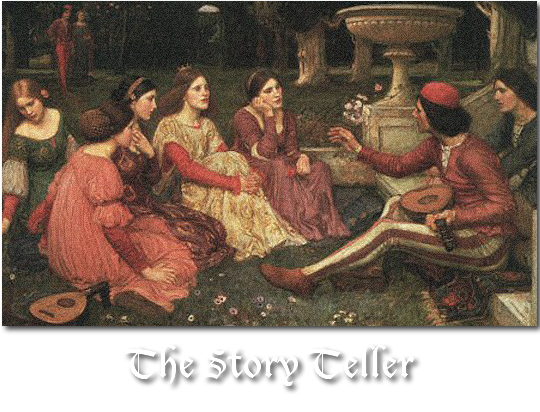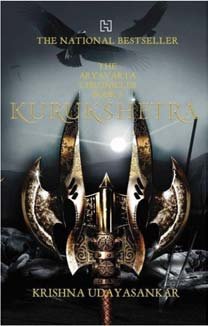As such, I'm a huge fan of stories. The takeaway of the story Kurukshetra, by Krishna is a political, emotional and social issue, where everyone tries to do the right thing but end up hopelessly compromising the lives of those who trust in them.
The hero of this telling is Govinda and the heroine is Panchali. Govinda is life whereas Panchali signifies death. Govinda is a character I have always struggled to accept. In essence, how can someone so naughty and shrewd be so benign and wise? This is the first book that has appealed to me so much because Govinda here is a very possible and a very lovable person, a person who I might be insanely interested in. Govinda represents what I seek in life so badly and what gives me ultimate bliss - adventure, spontaneity, surprise, wit and wisdom. The unchanging change, the one who does exactly what he wants to change the world for better, a person who takes on the system and who acknowledges his transformations. He may stand for something and then the polar opposite, a person unafraid to change.
And then there is Panchali, the strength and uniqueness of her character is unparalleled. Through the books, her character is chiselled by tough incidents and she becomes darker and emerges more powerful and compelling. And in this story, she decided to let the world tear itself asunder on Kurukshetra to save Govinda. The journey of Panchali is portrayed to influence Govinda to understand that the system is flawed. A system that sat serenely and could not save Panchali is something that deeply unsettled Govinda.
While these are the pivotal characters, the books are a product of immense research and each character is fleshed out so beautifully. It felt like sheer poetry that at one point I had to remind myself that it was prose. Coming to Kurukshetra in particular, the book wastes no time in delving into the war within the first few pages, or at least that's how I felt. Each and every detail of the war was scientific, right from a concussion inducing Bhramastra to explosives. Honestly, I did not recognize that Vasusena was Karna and ostensibly that's my fault as my only knowledge of him was his excessive generosity. On a lighter note, I identified with Uttara the most, an adamant yet blunt person.
In all, it was a story that felt honest and even though it was tragic, it felt so strong. It felt like the final glorious legacy before the total collapse of excessive unnatural order. And it struck a common chord in so many ways.
The story of the system, the liquid nature of good and evil, the butterfly effect, the dangers of riding regardless of fear like Abhimanyu, the fact that a woman is still, in many ways, viewed as a belonging, the conflicting duties of heart and mind like Partha, the helpless feeling of being trapped by insecurities and duties like Syoddhan, the quietness of a few great souls like Shikandin, ah the list is endless, all of these are very relevant today.
Finally, like the in the book, I'd like to end by saying, there is a Govinda in all of us. That ember of inspiration, hope, change and the will to savour life exists in each and every beating heart.


No comments:
Post a Comment